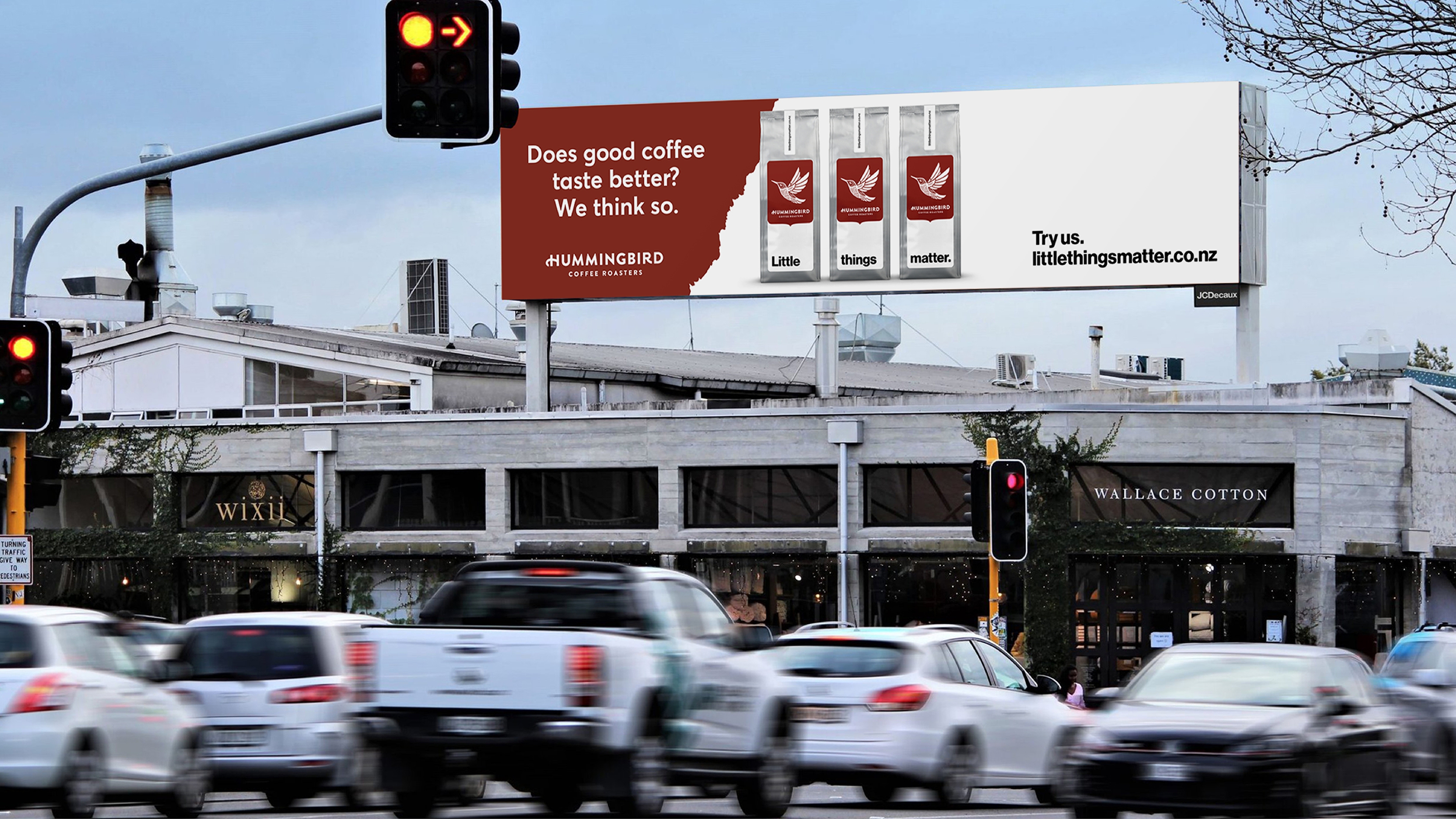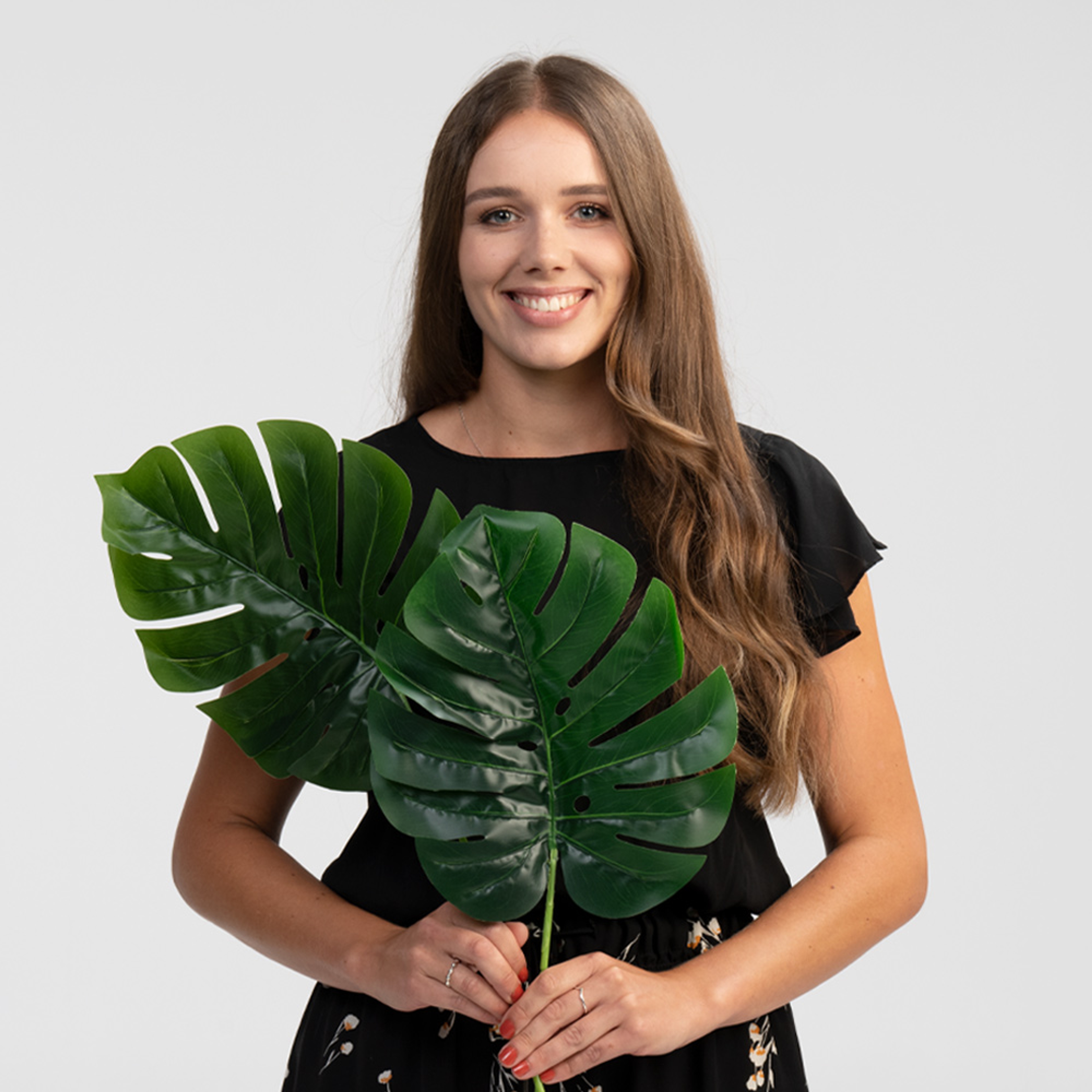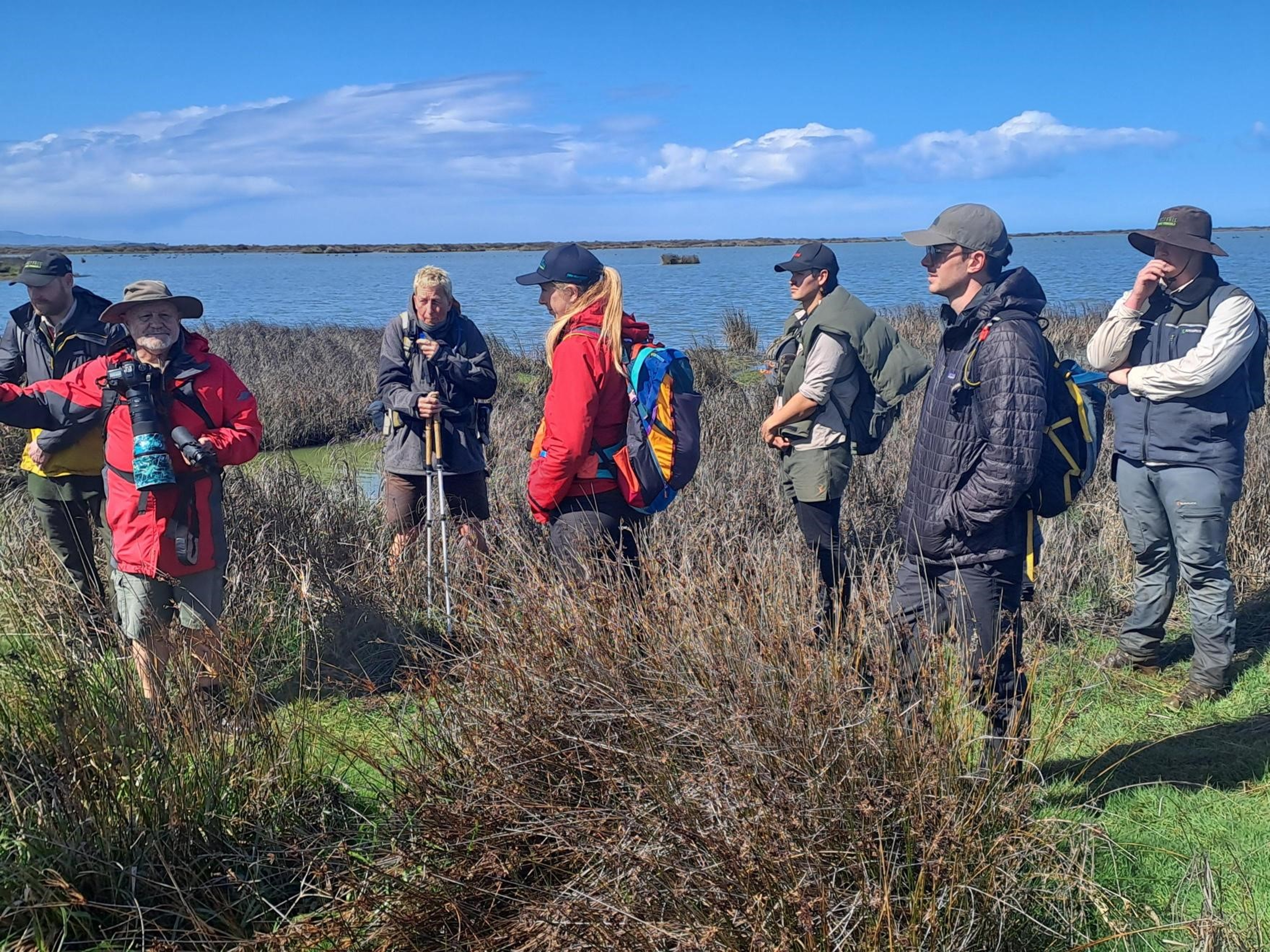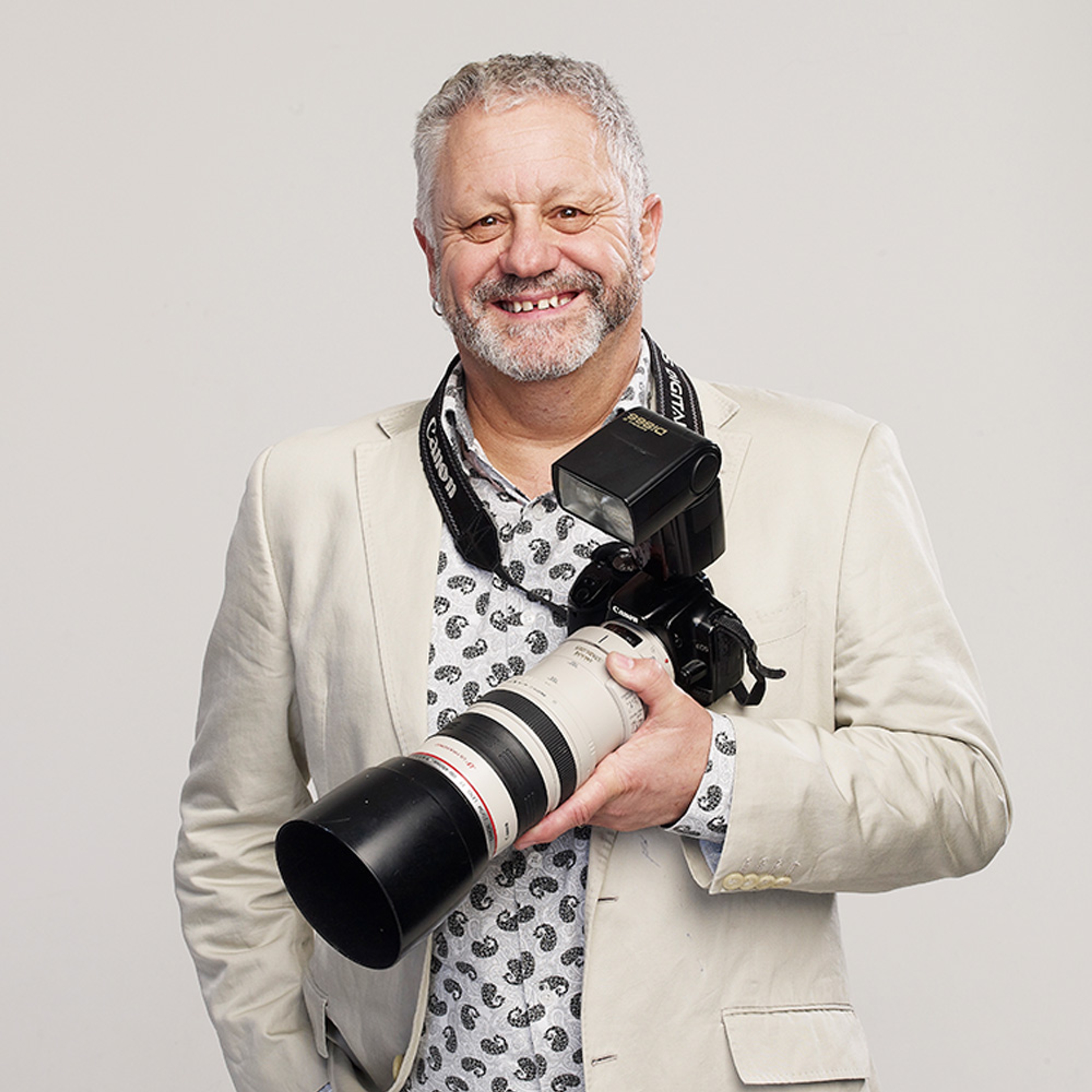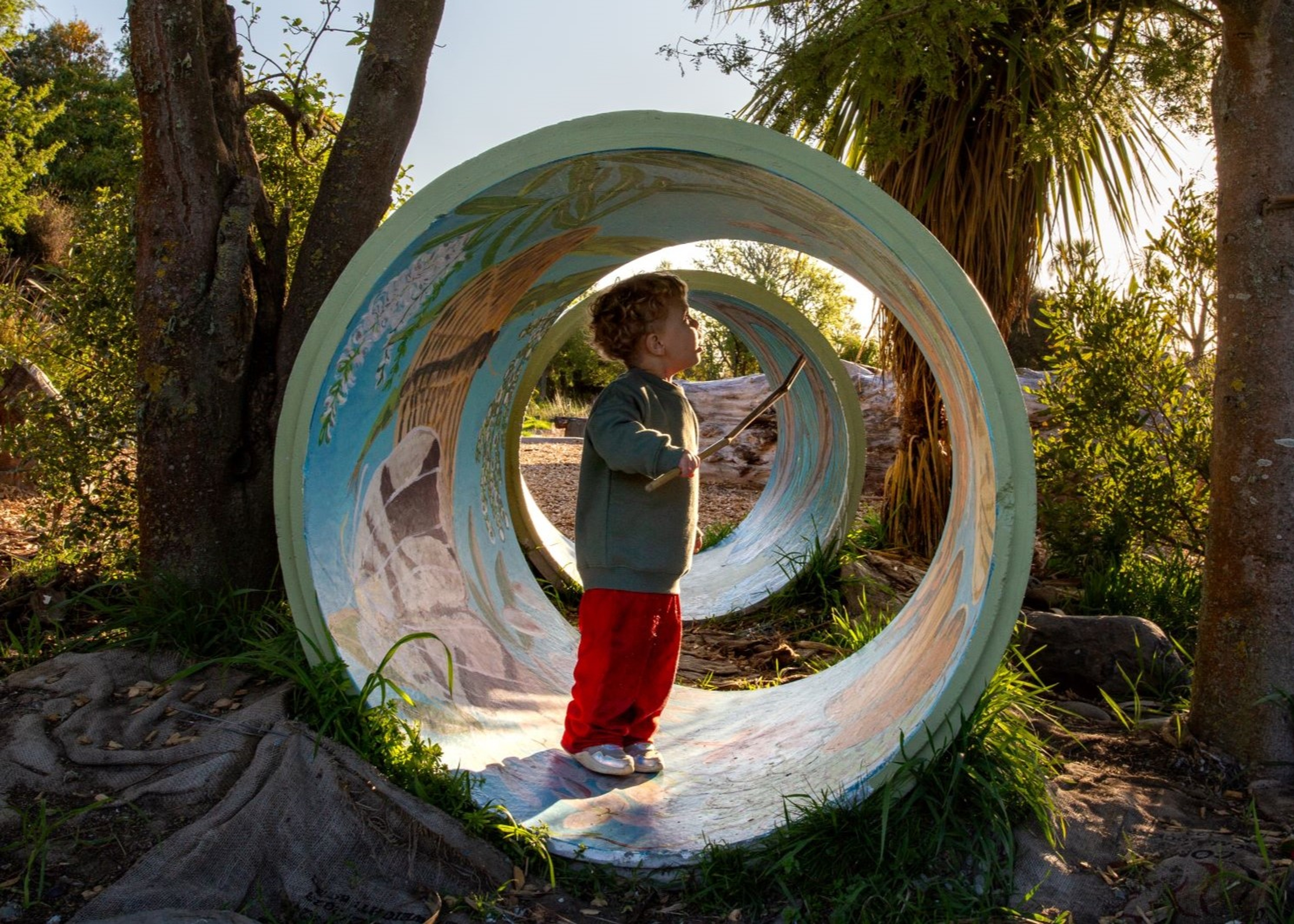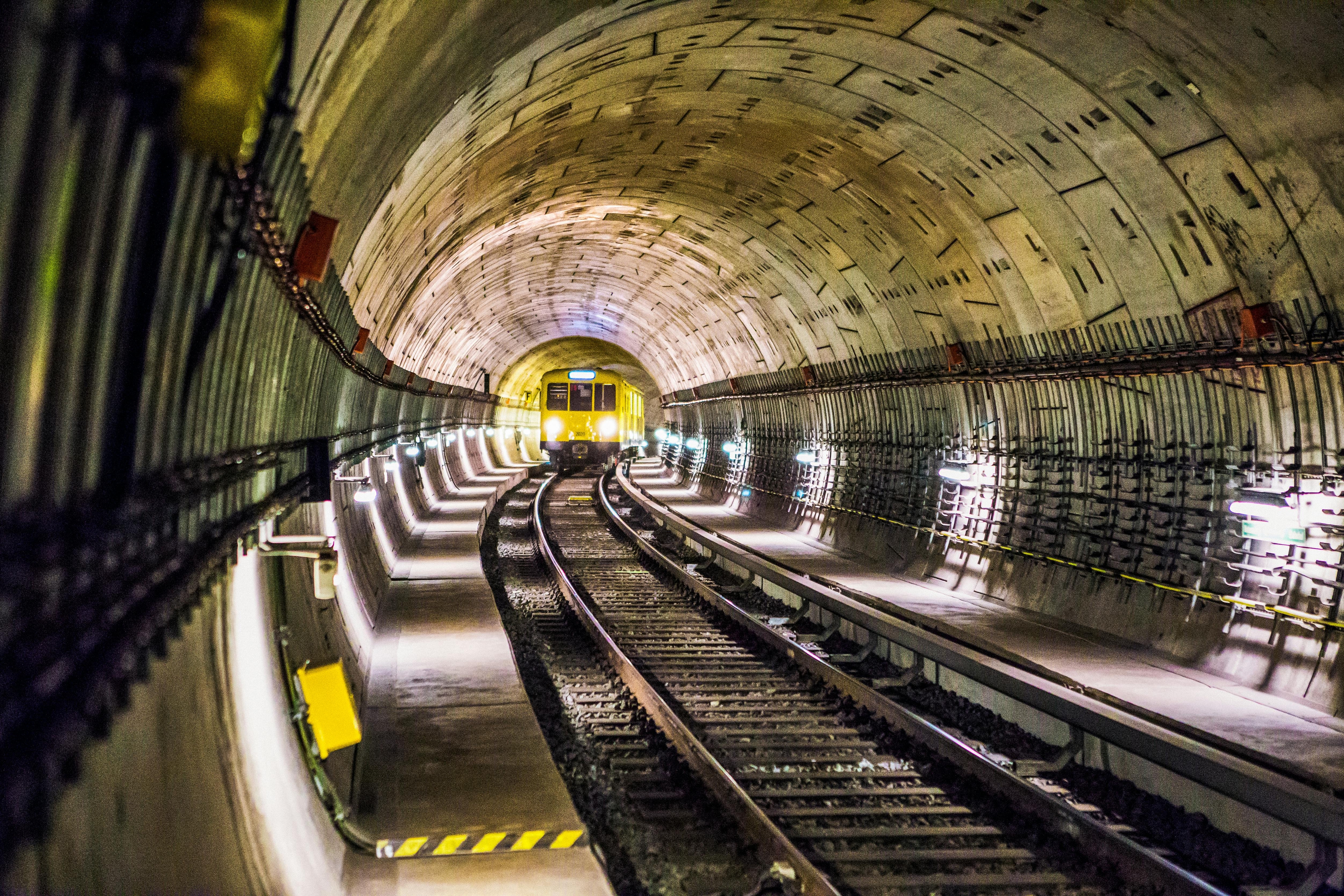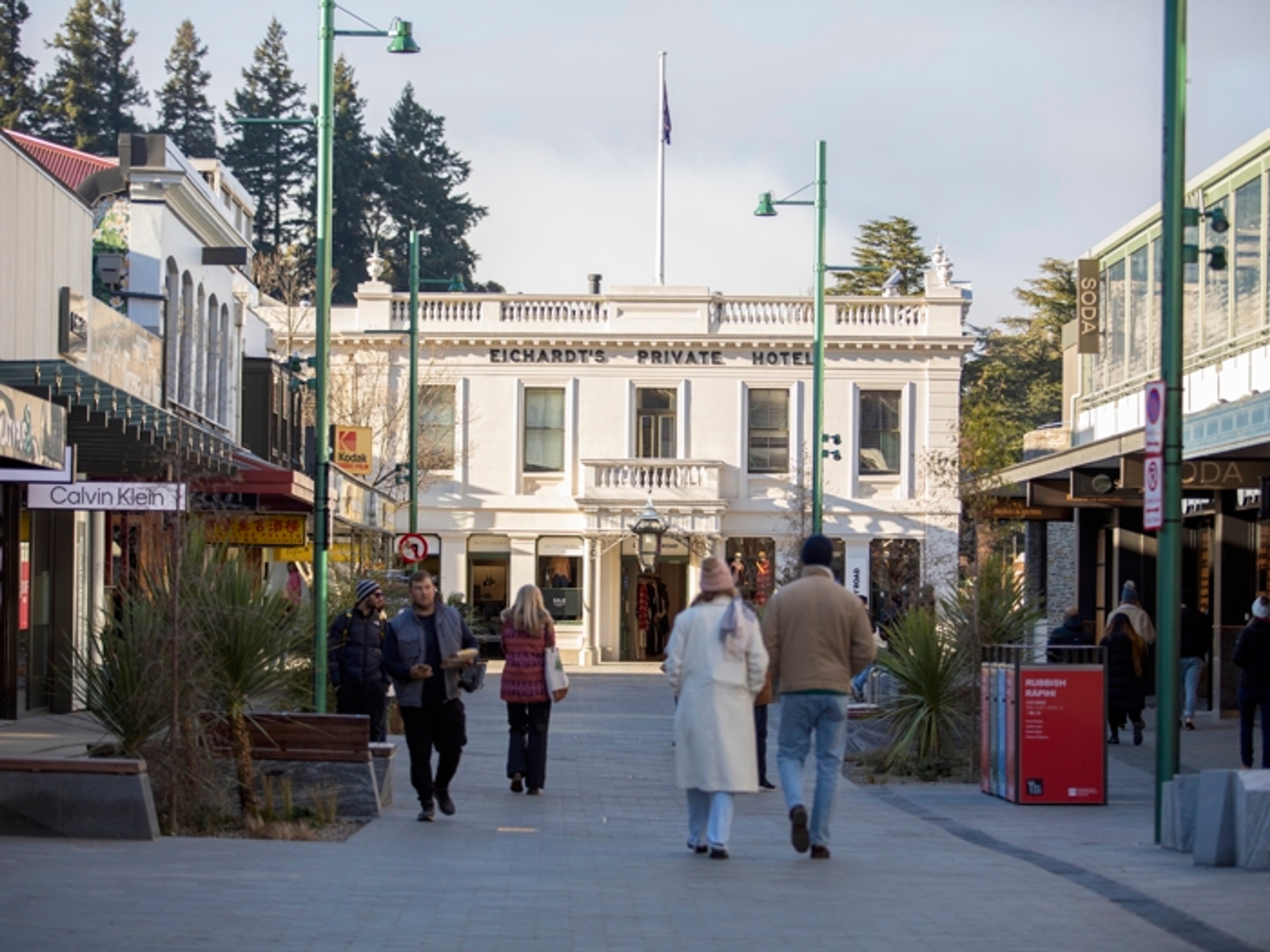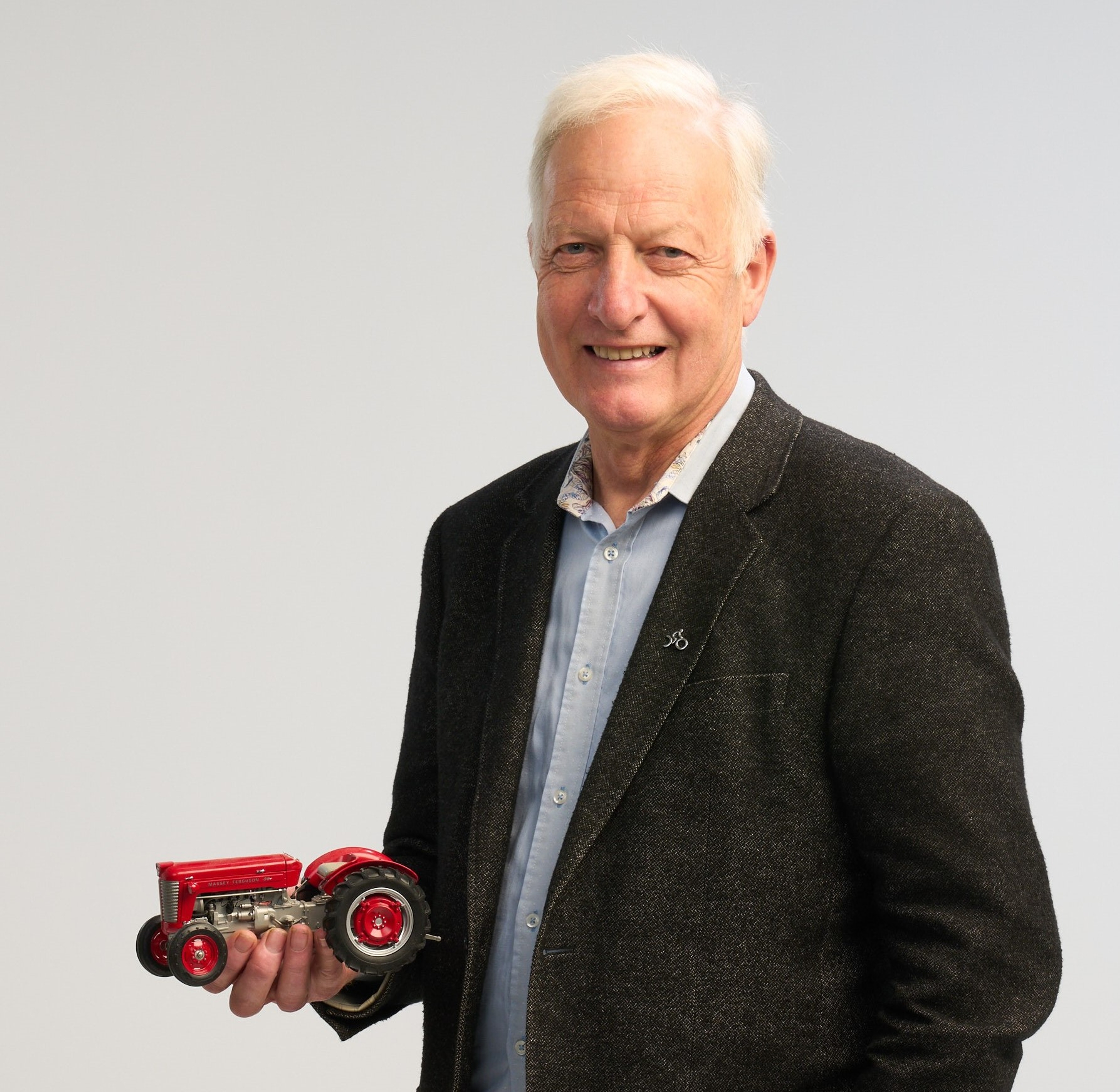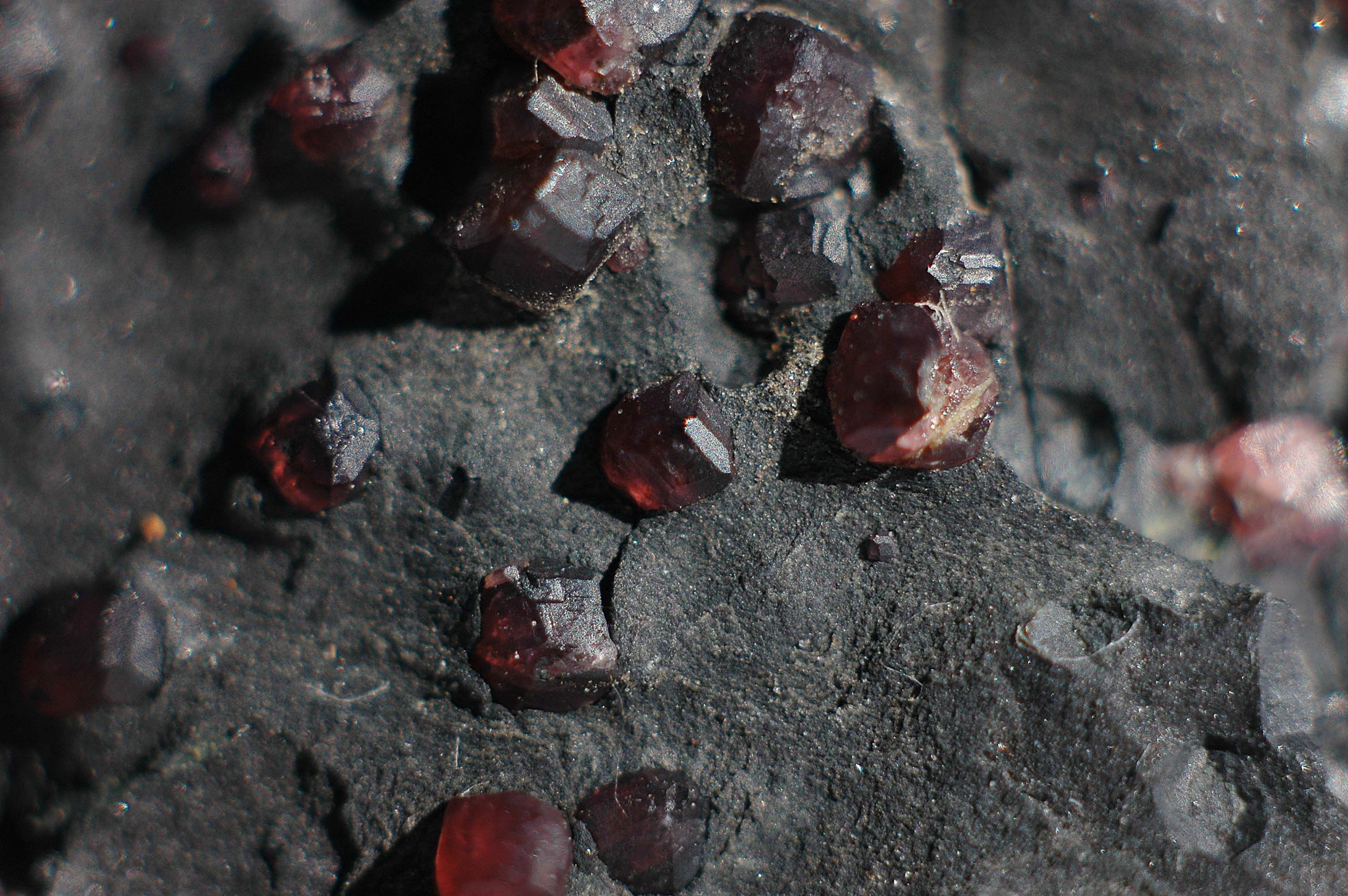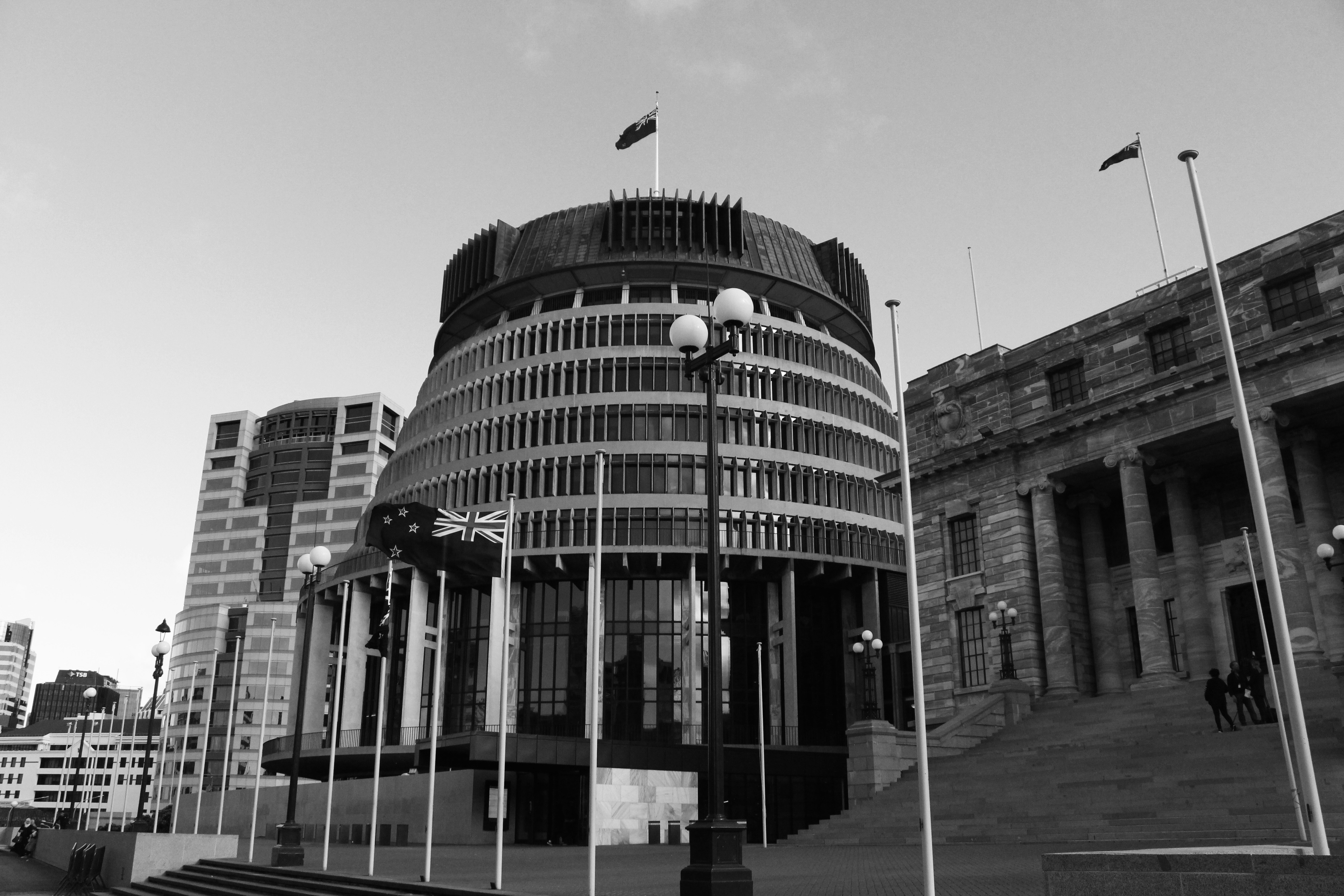Engaging with the community for Aotearoa's first Energy-from-Waste facility
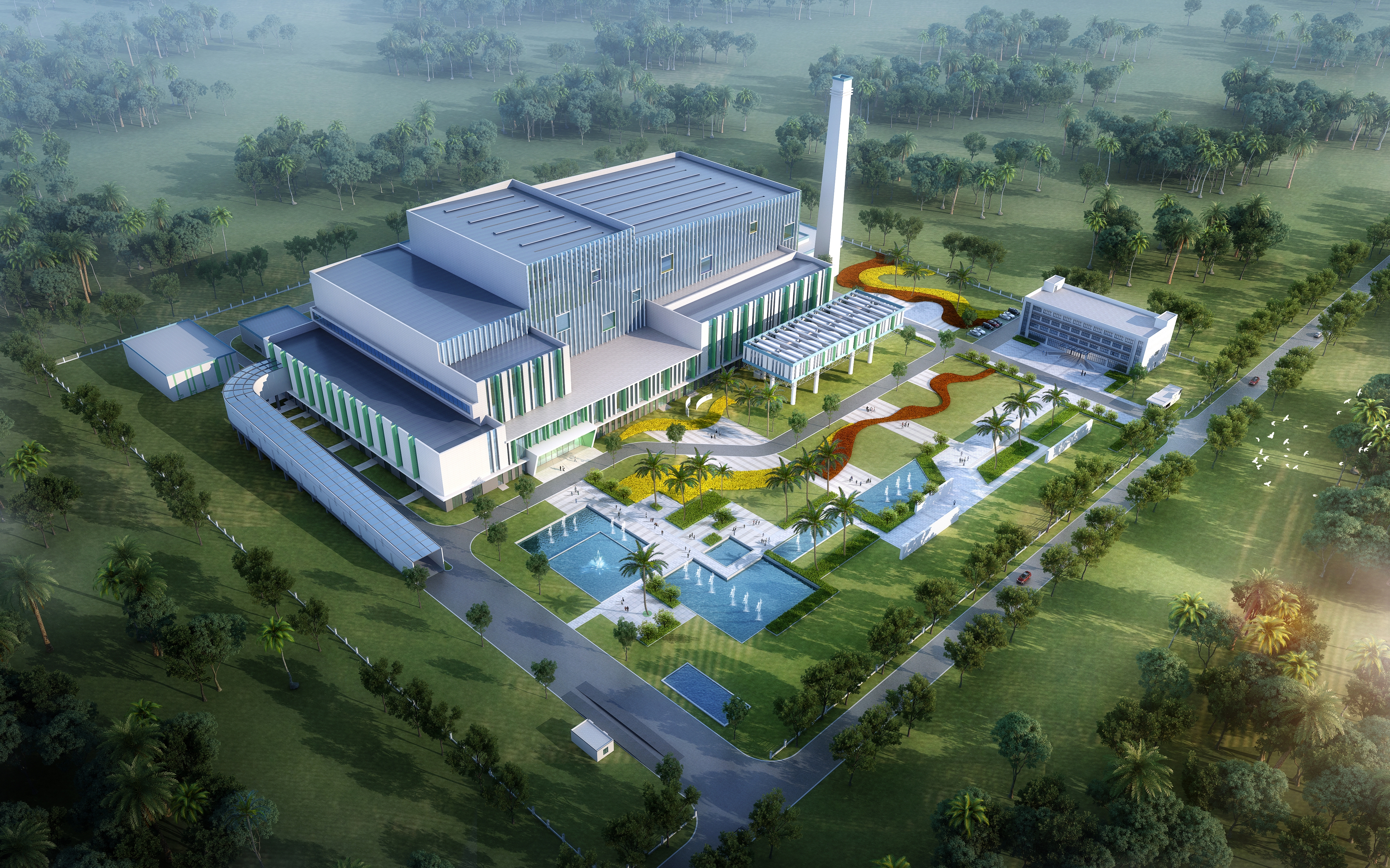
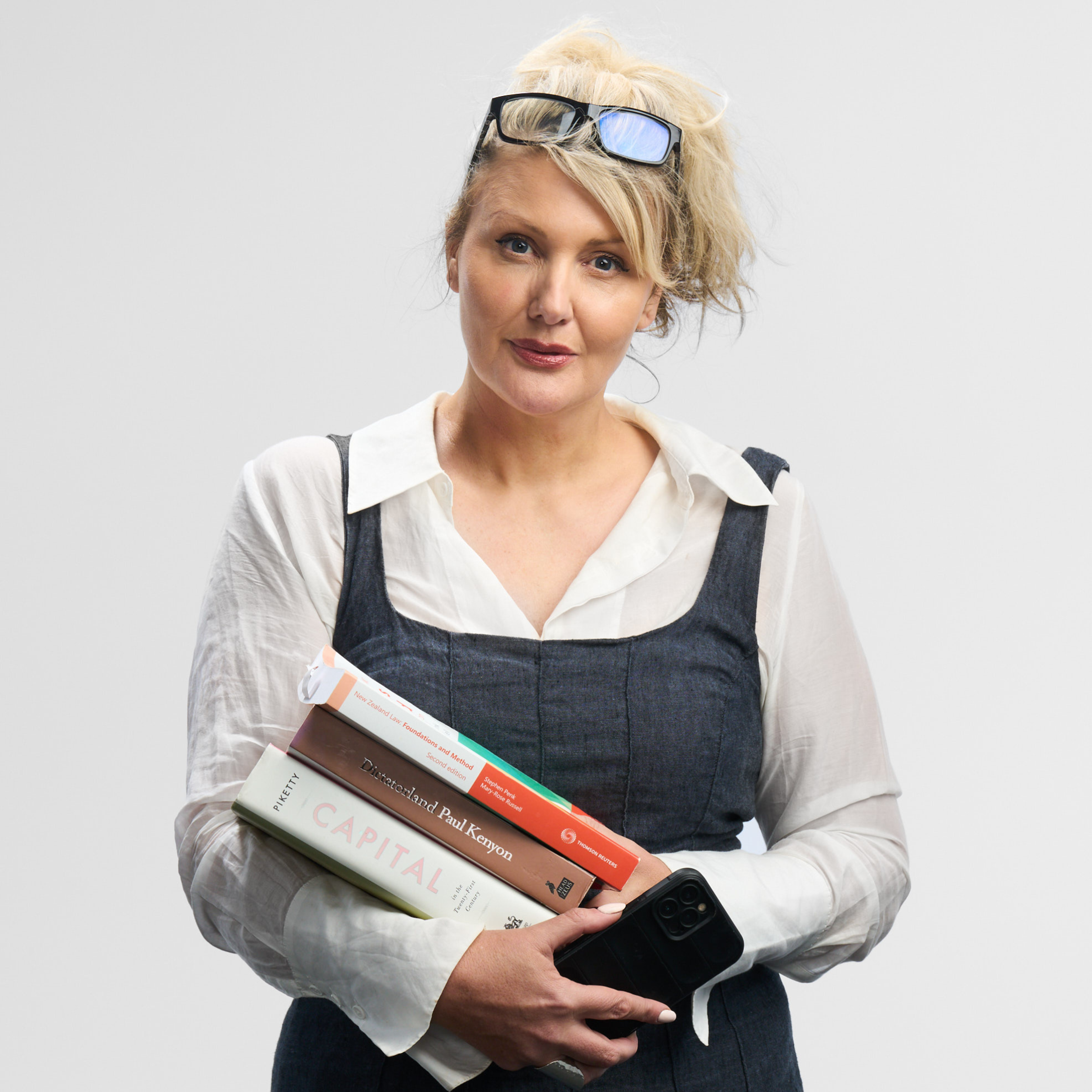
Lisa-Marie Richan (L-M)
Convergence is often approached by companies seeking our help to engage on alternative solutions to complex but significant challenges facing communities and government.
One such project is a major initiative to radically combat Aotearoa New Zealand’s waste crisis and its resulting greenhouse gas emissions, proposed by South Island Resource Recovery Limited (SIRRL).
In late 2021, Convergence helped SIRRL launch Project Kea – the nation’s first Energy-from-Waste facility. When it’s consented and built, the plant will safely convert more than 350,000 tonnes of waste into renewable electricity every year – waste that would otherwise be dumped into South Island landfills.
Our country has always relied on landfills and new sites are still being consented. This is despite there being no compulsory methane capture and recent examples of older landfills collapsing into waterways – as happened at the West Coast’s Fox River within a pristine UNESCO heritage site.
SIRRL Director and South Canterbury farmer, Paul Taylor, believes that minimisation of waste at source and recycling as much as possible must be Aotearoa New Zealand’s priorities. “But we continue to face a growing waste crisis and associated production of climate-changing methane emissions.
“Our country is fast running out of options. We simply can’t continue to bury our mounting rubbish problem in the ground for our children to deal with,” says Paul.
At recent International Climate Change Conferences, Aotearoa New Zealand has confirmed its official commitment to drastically reduce methane and other greenhouse gas emissions, and to start doing it yesterday.
Rather than just signing agreements and shaking hands, Paul says it’s clear we need to be bold, to seriously change our thinking, and to invest in practical solutions.
“Energy-from-Waste technology has advanced considerably and quickly. If we look to prosperous European Union members, there are almost 500 plants in more than 20 countries that are safely converting non-hazardous waste from households, industry and the building sector into an alternative energy source,” he says.
Convergence ensured that all Project Kea communications were clear - with easily understood technical concepts; and environmental, economic and community benefits that were explained in plain language.
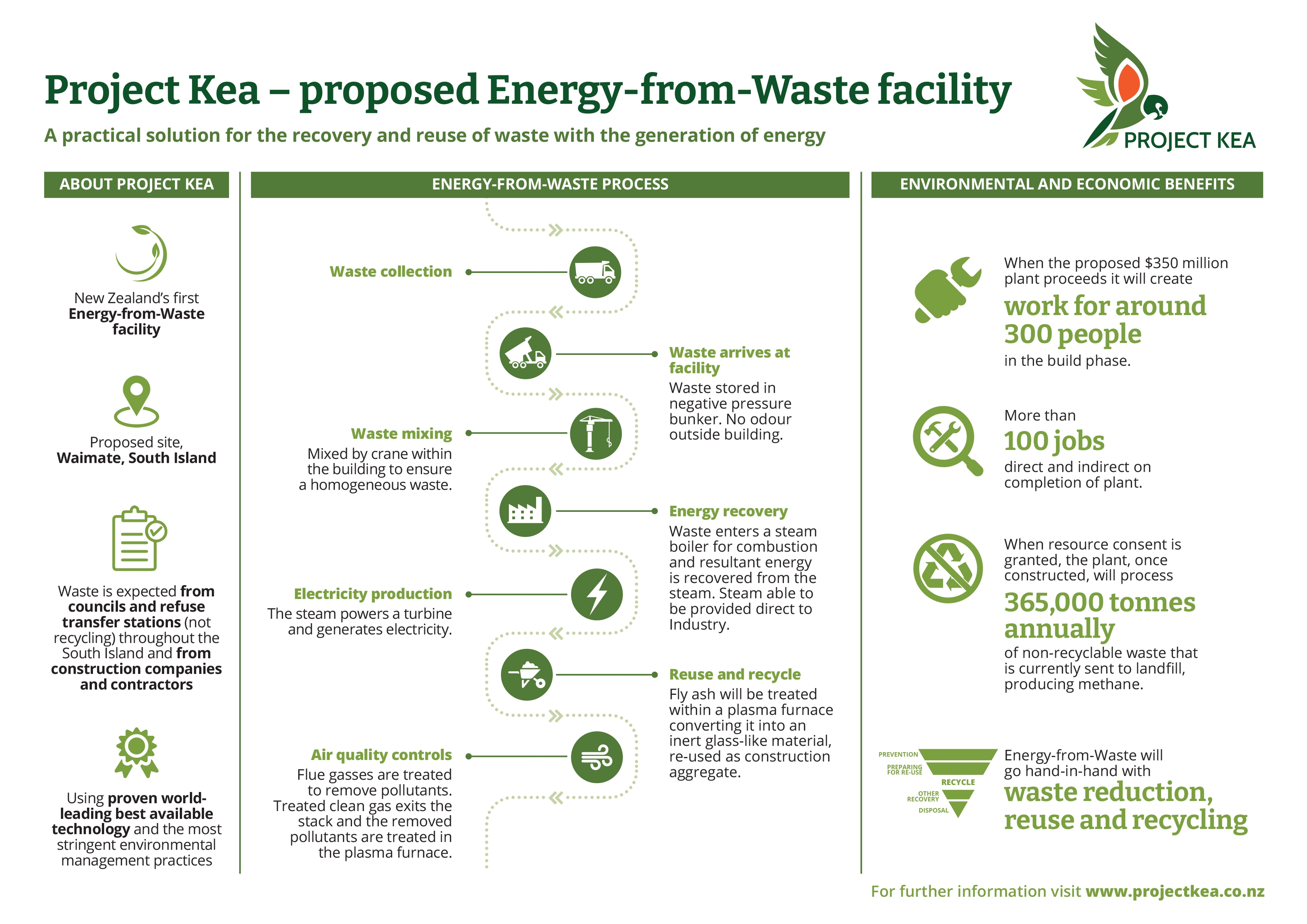
New technology, resource consent processes and community builds often attract controversy, so success starts with building trusting, transparent and frank relationships - with clients and with the community - owning any missteps and having the flexibility to pivot as issues arise.
Convergence developed a narrative and messaging for Project Kea, then used this as the basis to build a website featuring independent global research, case studies, links to useful websites, and a growing library of frequently asked questions (including those for a more technical audience).
We also created infographics showing how the technology works and simple process maps explaining the Resource Management Act consenting process. Convergence organised and implemented ‘meet the Directors’ open days in Waimate, near the likely site of the Energy-from-Waste facility, where residents and local businesspeople could drop in and discuss the project. Infographics and written information were displayed to explain the plant and its local impacts.
We arranged interviews with local media, meetings with government representatives and presentations to business groups aimed at encouraging community participation and submissions.
Meanwhile in Wellington, we organised political party and MP briefings, and ensured relevant Cabinet ministers and officials knew about the benefits of the project and were kept up to date on its progress.
SIRRL recognises the value and economic benefits of Energy-from-Waste, which will use safe and effective international disposal technology to provide local electricity security for North Otago. Project Kea will open the region to further industry and innovation by powering the existing primary production and encouraging new businesses.
The new plant still requires consent under the Resource Management Act, further engagement with iwi, and more outreach and discussions with community and business.
Project Kea is complex and requires further hard mahi, but it’s clear that the status quo is no longer viable. Convergence is proud to support Project Kea and to work in partnership with SIRRL directors to present this technology option and innovative solution. The future of the region’s environment, food production and waterways are too important to do nothing.
